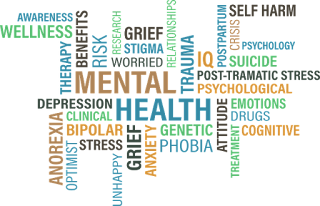
Experienced counsellor and psychotherapist in Thornaby, England providing online therapy services over WhatsApp, Meet, Skype, and Telegram for multicultural clients in 20+ countries. Sensible, super private, and LGBTQ affirming. Book a one-hour session at £35, with payment via direct deposit, Wise or PayPal. Email: ellen.whyte@gmail.com First 15 minutes are free
Wednesday, October 23, 2019
Why Anal Bleaching Is A Thing
 Experienced counsellor and psychotherapist in Thornaby, England providing therapy services over WhatsApp, Meet, Skype, and Telegram for multicultural clients in 20+ countries. Sensible, super private, and LGBTQ affirming. Book a one-hour session at £35 via direct deposit, Wise or PayPal..
Email: ellen.whyte@gmail.com First 15 mins are free
Experienced counsellor and psychotherapist in Thornaby, England providing therapy services over WhatsApp, Meet, Skype, and Telegram for multicultural clients in 20+ countries. Sensible, super private, and LGBTQ affirming. Book a one-hour session at £35 via direct deposit, Wise or PayPal..
Email: ellen.whyte@gmail.com First 15 mins are free
Tuesday, October 8, 2019
You Don't Need To Relive Your Trauma To Heal
 |
Reliving the details of an attack, rape, robbery, sexual assault or other violation is not a mandatory step towards healing.
For some people talking about the event can be helpful. But for many, reliving it re-traumatises them. Also, it doesn't necessarily lead to insights.
As such, standard practice today is not to discuss the actual details of the event. Instead, we focus on support, how you feel today and helping you move on to live your best life.
Here’s how it works. Suppose you were robbed a few months ago and you now find that you become super anxious when you step out of your house. Also, you're afraid of strangers.
Sessions would focus on this:
• Help you feel safe again.
• Help you make a list of your supporters and other resources
• Help you manage and effectively change that fear of going out.
• Help you manage and effectively change that fear of strangers.
• Help you integrate it into the past, so you can focus on the present and the future.
A big part of the process would be talking about the shock and helplessness that usually follows an attack. We might discuss false beliefs like why you might feel somehow that you 'deserved' being attacked, and why so many people blame victims.
As part of the sessions, we would talk about how you can shut down that secret voice inside you as well as coping with the idiots that blame you for being attacked.
We might also talk about the kind of depression that follows from pain (if you had bones broken, for example) and how to manage that.
BUT! We would not have you relive exactly what happened during the robbery. You can heal without sharing every little detail.
Of course, if you think going over events in detail is helpful to you, then we can. But we do it carefully and only after we have mapped out your support network. So when the session ends, you know where to reach out.
I think it's important that this message gets out. Because there are victims who needs help but who are afraid of talking to mental health professionals because they think that they will have to relive all their bad experiences. So, be assured that you don't.
I hope this helps. If you've questions, email me.
 Experienced counsellor and psychotherapist in Thornaby, England providing therapy services over WhatsApp, Meet, Skype, and Telegram for multicultural clients in 20+ countries. Sensible, super private, and LGBTQ affirming. Book a one-hour session at £35 via direct deposit, Wise or PayPal..
Email: ellen.whyte@gmail.com First 15 mins are free
Experienced counsellor and psychotherapist in Thornaby, England providing therapy services over WhatsApp, Meet, Skype, and Telegram for multicultural clients in 20+ countries. Sensible, super private, and LGBTQ affirming. Book a one-hour session at £35 via direct deposit, Wise or PayPal..
Email: ellen.whyte@gmail.com First 15 mins are free
